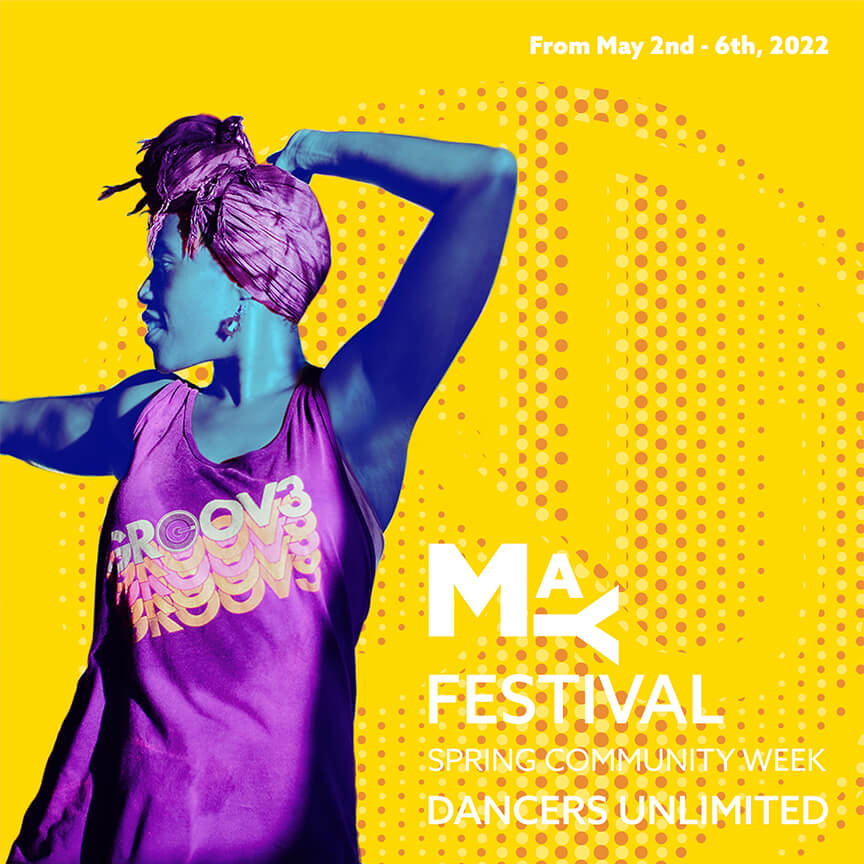In mid-March, Brooklyn Arts Council (BAC) announced that it would allocate over $1.32 million to 238 Brooklyn based-artists and cultural organizations through its 2022 Community Arts Grants and Creative Equations Fund. It marks the highest number of grantees and awardees, as well as the largest amount of funding, BAC has ever distributed. The council launched the fund last year to support community-engaged artists, arts organizations, cultural entrepreneurs, and researchers who have dedicated their creativity to solving social problems.
One of this year’s recipients is Dancers Unlimited (DU), a bi-coastal nonprofit based in Honolulu and New York City that creates authentic moveMEANT narratives for community advancement through creative collaborations, public programming, and social justice work. Approximately $5,000 from BAC’s fund will allow DU to engage with communities through its Community Engagement Program.
Company members, like so many others during the pandemic, lost their gigs and jobs overnight in mid-March 2020 for, essentially, a year (or more) before restrictions began to lax and were lifted. “It became financially and emotionally heavy where we were witnessing a lot of people losing family members, going through anxiety, and dealing with isolation. A lot of our dancers also never got their unemployment [benefits] until four months into the pandemic shutdown,” said Linda Kuo, DU’s co-founder and co-director. “But because we were also home more, we started cooking a lot more … and a conversation started from that craving for nourishment and healing during the pandemic.”
Virtual conversations centering around food scarcity and how food availability can be impacted by income, racism, systemic designs, and even natural disasters eventually became dubbed as “Edible Tales” in December 2020. It has since evolved into a food movement that examines and explores cultural heritage, social justice, and sustainability as well as heals people’s relationships with how, what, and why they eat. Edible Tales will premiere in November 2022 on Oahu and in January 2023 in New York City.
“Because Edible Tales is community driven, the conversation and performance pieces are localized. So, when people come, they understand [the narrative] immediately—like ‘Yes, this has been impacting me too and has been on my mind.’ Then a bigger conversation takes shape with [us asking] how can we come together, using dance as a platform, to come up with creative solutions?” Kuo said. “I love that we can combine physical movement with food stories, which allows us to nourish ourselves at the same time while we take on very challenging topics.”
“It’s very much a collaborative experience where we’re gathering food stories from different people in the community, of different cultural backgrounds,” added Candice Taylor, DU’s new co-artistic director who began dancing with the company three years ago. “We talk about the way food makes us feel, the memories that are attached to food, and how connected it is with culture and our experiences.”
For example, Kuo, who grew up in Hawaii, began talking about taro—a staple of the Native Hawaiian diet and at the core of Hawaiian culture—with people from Africa, Central America, South America, Asia, and Polynesia. “I never realized a simple root vegetable like taro—which at some point in human history traveled all around the world—can be such an engaging and exciting topic for everybody,” she said.
With the funds, Kuo intends to transform DU’s discussions into multimedia dance installations that can be shared with the larger community. “Something we realized during the pandemic is that ‘community’ is bigger than just the dance community for us. So, the $5,000 can really help us invite the local community to come and watch what we have created based on our discussions with them,” Kuo said. She explained how she envisions a showcase being held in a gallery with a dance company or community member taking groups of people around the gallery to watch different dance pieces. “We are also talking to chefs right now to, hopefully, do cooking installations so that people can walk around, watch different dances, eat, watch documentary-style interviews with local community members and DU dancers, and talk to one other,” Kuo added.
Both Kuo and Taylor are excited to reach more people through their work this summer. “I feel like we’ve been trying to gather all the good energy we can at Dancers Unlimited these past couple of years, so that we can come out of this pandemic stronger and heal our community,” Taylor said. “I think this funding will definitely allow us to create and share awesome work that speaks to the people and their concerns.”
If you can’t wait to see what DU does this summer, the company will be holding Spring CommUNITY Week, May 2 to 6. The week-long, free festival features a hula & lei-making workshop, a dance battle, commUnity performances, and a sustainable fashion show. Because capacity is limited, register to attend at eventbrite.com/e/spring-community-week-vip-rsvp-tickets-304845510127.










